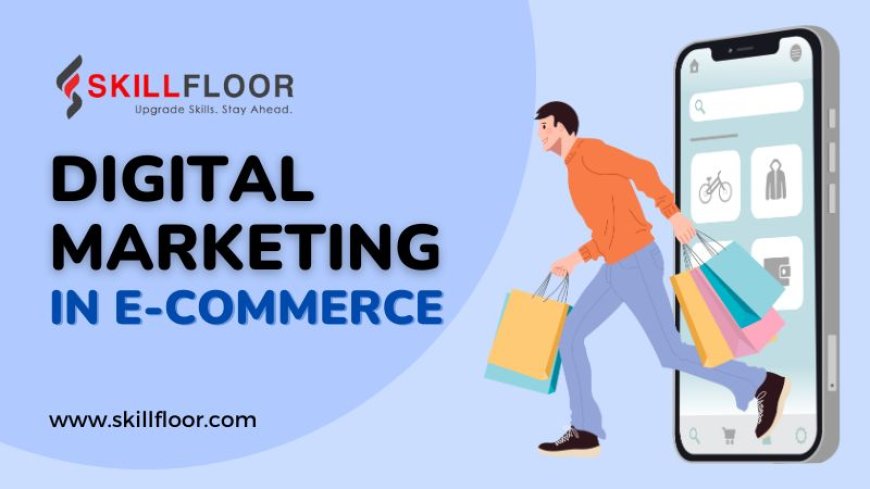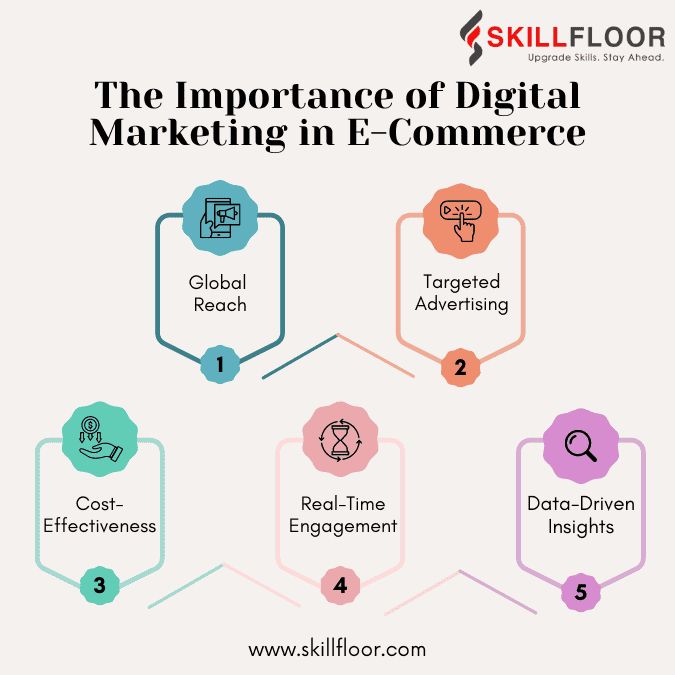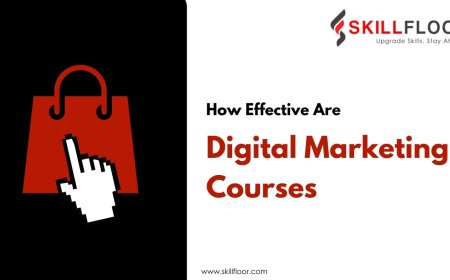What is Digital Marketing in E-Commerce
Discover key digital marketing strategies for e-commerce to grow your business, increase sales, and strengthen your online presence effectively.

Digital marketing in e-commerce refers to the strategic use of online channels to promote products and services, engage with potential customers, and drive sales within the digital marketplace. What is digital marketing in e-commerce involves leveraging various platforms such as social media, search engines, and email campaigns to reach a targeted audience effectively. Businesses utilize techniques like SEO, content marketing, and PPC advertising to enhance visibility and attract traffic to their online stores. By understanding consumer behavior and utilizing analytics, what is digital marketing in e-commerce allows businesses to tailor their strategies for maximum impact and conversion rates. It also encompasses mobile marketing, influencer partnerships, and customer relationship management (CRM) systems to nurture leads and build long-term customer loyalty. Successful e-commerce digital marketing strategies focus on delivering relevant content, optimizing user experience, and adapting to market trends swiftly. Overall, digital marketing in e-commerce is crucial for businesses aiming to thrive in the competitive digital world by encouraging meaningful connections and driving sustainable growth.
Key Components of Digital Marketing in E-Commerce
-
Search Engine Optimization (SEO): SEO is an important part of digital marketing that focuses on making a website rank higher in search engine results pages (SERPs). E-commerce enterprises can increase exposure and attract organic visitors by implementing SEO best practices such as keyword research, content production, and link building.
-
Pay-Per-Click Advertising (PPC): PPC advertising involves paying for ads to appear on search engines and other platforms, with marketers only paying when people click on them. This type of digital marketing enables e-commerce enterprises to target certain keywords and demographics, ensuring that their advertisements reach the most appropriate audience.
-
Social Media Marketing: Social media networks such as Facebook, Instagram, and Twitter provide e-commerce enterprises with effective tools for engaging with their target audience. Organic posts, paid adverts, and influencer collaborations can help brands establish a community, boost traffic to their website, and improve sales.
-
Content Marketing: Content marketing entails developing and distributing useful, relevant, and consistent material in order to attract and maintain a specific audience. In e-commerce, content marketing includes blog entries, product manuals, films, and infographics that educate, entertain, and inspire prospective buyers.
-
Email Marketing: Email is still a highly efficient digital marketing strategy for e-commerce enterprises, allowing them to nurture leads, promote products, and drive conversions. Personalized email marketing based on user behavior and preferences can greatly improve client engagement and retention.
-
Digital Analytics: Measuring and analyzing the efficacy of digital marketing efforts is critical for improving tactics and increasing ROI. E-commerce companies use tools like Google Analytics to monitor website traffic, conversion rates, and other vital metrics, providing significant insights into customer behavior and campaign efficacy.
The Importance of Digital Marketing in E-Commerce
Digital marketing plays a pivotal role in the success of e-commerce businesses for several reasons:
-
Global Reach: Unlike traditional marketing approaches, which are limited by geography, digital marketing allows e-commerce enterprises to access a global audience with no effort.
-
Targeted Advertising: E-commerce enterprises may personalize their marketing efforts to certain demographics, interests, and behaviors, resulting in increased relevance and engagement.
-
Cost-Effectiveness: Digital marketing frequently provides a larger return on investment (ROI) than traditional marketing methods, allowing e-commerce companies to deploy their expenditures more effectively.
-
Real-Time Engagement: The interactive aspect of digital marketing enables e-commerce enterprises to engage with customers in real-time, responding quickly to requests, feedback, and trends.
-
Data-Driven Insights: Digital marketing gives useful data and analytics to e-commerce organizations, allowing them to make better strategic decisions, improve consumer experiences, and drive growth.

The Future of Digital Marketing in E-Commerce
The digital market is constantly evolving, driven by technological advancements and changing consumer behaviours. Key trends shaping the future of digital marketing in e-commerce include:
-
Artificial Intelligence (AI): AI improves e-commerce by personalizing product recommendations, powering chatbots for customer care, and analyzing data to gain predictive insights, all of which improve overall user experience and productivity.
-
Voice Search Optimization: With the rise of smart speakers and voice assistants, optimizing SEO tactics for voice search requires customizing content to natural language inquiries, ensuring brands' presence in this ever-changing search environment.
-
Augmented Reality (AR): AR enhances e-commerce by enabling virtual try-ons and interactive product demos, providing customers with immersive purchasing experiences that bridge the online and offline shopping worlds.
-
Sustainability and Social Responsibility: Integrating sustainability into digital marketing initiatives increases consumer trust and loyalty by matching company values with ethical practices, appealing to environmentally sensitive customers, and contributing to long-term brand success.
How to Implementing a Digital Marketing Strategy in E-Commerce
To implement an effective digital marketing strategy, follow these steps:
Step 1: Define Your Goals
Set specific goals for your digital marketing initiatives, such as growing traffic, sales, or brand awareness. These objectives will serve as the foundation for your approach and will be used to assess success. Align your goals with the overarching corporate objectives to guarantee consistency. Regularly assess and revise goals as needed.
Step 2: Understand Your Audience
Conduct extensive market research to better understand your target audience's demographics, tastes, and behaviour. This information allows you to more effectively personalize your marketing messages and plans. Surveys and analytics are useful methods for gathering insights. A thorough understanding of your audience leads to increased engagement and conversions.
Step 3: Choose the Right Channels
Choose digital marketing platforms that are consistent with your objectives and audience preferences. For example, if your target demographic is active on Instagram, focus there. Use a variety of channels to achieve a wider reach. Customize your material for each platform to optimize impact.
Step 4: Create High-Quality Content
Create engaging, valuable material that speaks to your target audience. This encompasses blog articles, videos, social media updates, and email newsletters. Make sure your content is SEO-optimized to improve search engine presence. High-quality content promotes trust and increases traffic.
Step 5: Monitor and Adjust
Use analytics tools to regularly monitor the efficacy of your digital marketing activities. Analyze the data to find effective tactics and areas that want improvement. Make data-driven tweaks to improve results. Continuous monitoring ensures that your plan is effective and relevant.
Digital marketing in e-commerce refers to a wide range of strategies and tactics targeted at improving online exposure, traffic, and sales. Understanding and leveraging the power of digital marketing channels such as SEO, PPC advertising, social media, content marketing, email marketing, and analytics allows e-commerce businesses to effectively reach their target audience, build brand loyalty, and achieve long-term growth in the competitive digital environment.



























































